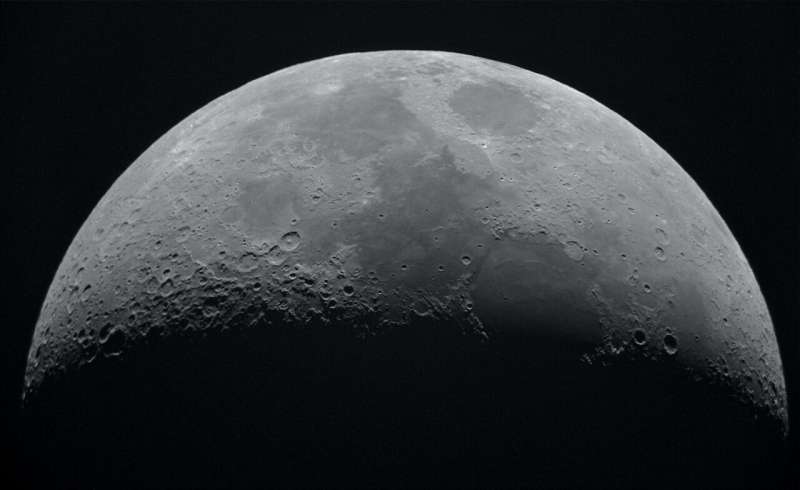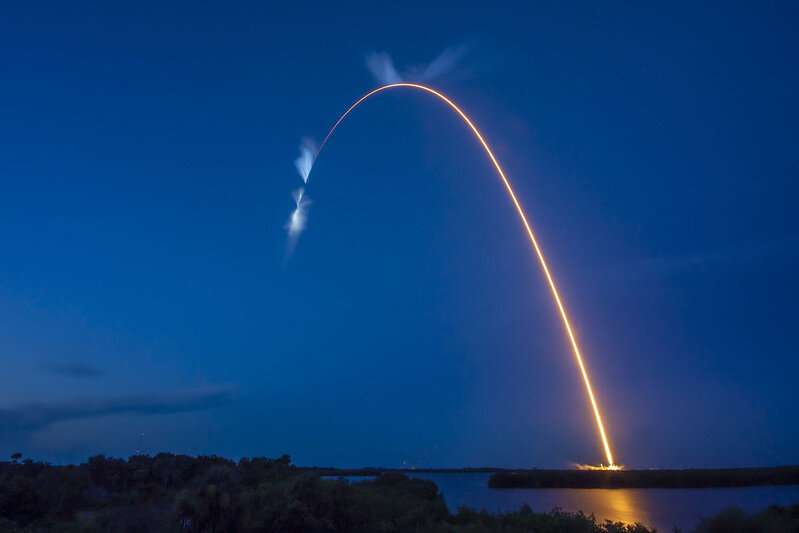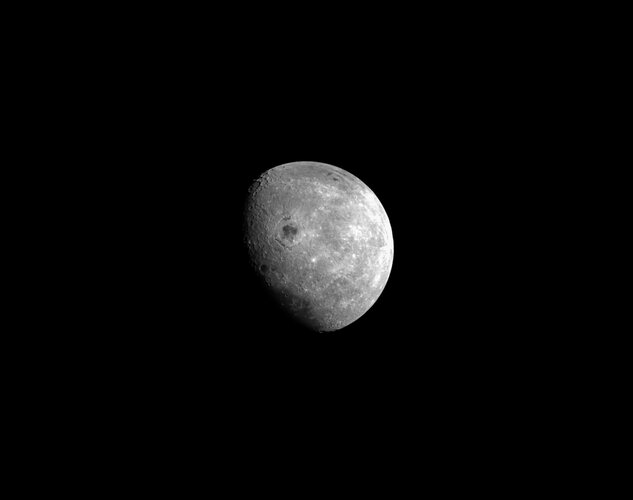
Copernical Team
Advanced Space awarded contract to deliver AFRL's mission to the Moon
 Advanced Space LLC., a leading space tech solutions company, announced that the Air Force Research Laboratory's (AFRL) Space Vehicles Directorate, as part of a collaborative effort with AFRL's Transformational Capabilities Office, has awarded the company a $72 million contract to deliver AFRL's Oracle spacecraft program, previously called the Cislunar Highway Patrol System, or CHPS.
Oracle
Advanced Space LLC., a leading space tech solutions company, announced that the Air Force Research Laboratory's (AFRL) Space Vehicles Directorate, as part of a collaborative effort with AFRL's Transformational Capabilities Office, has awarded the company a $72 million contract to deliver AFRL's Oracle spacecraft program, previously called the Cislunar Highway Patrol System, or CHPS.
Oracle Rocket Lab completes final launch rehearsal ahead of first Electron Mission from US
 Rocket Lab USA, Inc. (Nasdaq: RKLB) has completed a final launch rehearsal and is ready for lift-off for its first mission from U.S. soil as early as December 7. The mission will take place from Rocket Lab Launch Complex 2 at Virginia Space's Mid-Atlantic Regional Spaceport within NASA's Wallops Flight Facility - a launch pad developed to support U.S. Electron missions for government and commerc
Rocket Lab USA, Inc. (Nasdaq: RKLB) has completed a final launch rehearsal and is ready for lift-off for its first mission from U.S. soil as early as December 7. The mission will take place from Rocket Lab Launch Complex 2 at Virginia Space's Mid-Atlantic Regional Spaceport within NASA's Wallops Flight Facility - a launch pad developed to support U.S. Electron missions for government and commerc With new supplies, space station astronauts to research mending broken bones
 New research on the International Space Station will include implantable drug delivery devices and an adhesive that can stimulate bone growth.
SpaceX will launch a resupply mission as early as Tuesday to deliver a payload of items developed by commercial companies that need to be tested in orbit. The launch window opens at 3:54 p.m. EST.
It will be the 26th commercial resupply se
New research on the International Space Station will include implantable drug delivery devices and an adhesive that can stimulate bone growth.
SpaceX will launch a resupply mission as early as Tuesday to deliver a payload of items developed by commercial companies that need to be tested in orbit. The launch window opens at 3:54 p.m. EST.
It will be the 26th commercial resupply se Preparing For Space Travel
 As long-distance space travel transforms from a science fiction fantasy to a near-future reality, humanity is faced with a complex challenge: Can people socially and culturally adapt to and survive spending years hurtling across the universe in a contained, artificial space?
Shawn Graham, a digital archaeologist and historian at Carleton University, is working with the International Space
As long-distance space travel transforms from a science fiction fantasy to a near-future reality, humanity is faced with a complex challenge: Can people socially and culturally adapt to and survive spending years hurtling across the universe in a contained, artificial space?
Shawn Graham, a digital archaeologist and historian at Carleton University, is working with the International Space Orion performs first Lunar flyby with closest outbound approach
 On its sixth day into the Artemis I mission, Orion successfully completed its fourth orbital trajectory correction burn using the auxiliary engines at 1:44 a.m. CST ahead the first of two maneuvers required to enter a distant retrograde orbit around the Moon. The first three trajectory correction burns provided an opportunity to fire all three thruster types on Orion with the first using the lar
On its sixth day into the Artemis I mission, Orion successfully completed its fourth orbital trajectory correction burn using the auxiliary engines at 1:44 a.m. CST ahead the first of two maneuvers required to enter a distant retrograde orbit around the Moon. The first three trajectory correction burns provided an opportunity to fire all three thruster types on Orion with the first using the lar Gravitics raises $20M in bid to build next-generation space station modules
 Gravitics, Inc., an aerospace component manufacturing firm, announced raising $20 million to build large, next-generation space station modules. The seed round was led by Type One Ventures, and included Tim Draper from Draper Associates, FJ Labs, The Venture Collective, Helios Capital, Giant Step Capital (Chicago based), Gaingels, Spectre, Manhattan West, and Mana Ventures.
"The case for G
Gravitics, Inc., an aerospace component manufacturing firm, announced raising $20 million to build large, next-generation space station modules. The seed round was led by Type One Ventures, and included Tim Draper from Draper Associates, FJ Labs, The Venture Collective, Helios Capital, Giant Step Capital (Chicago based), Gaingels, Spectre, Manhattan West, and Mana Ventures.
"The case for G NASA's going back to the moon and must confront a familiar enemy: Dust

The moon is incredibly hot, and also incredibly cold.
There's radiation. A thin atmosphere. No air to breathe.
If NASA ever establishes a lunar base—a long-term project advanced Wednesday with the launch of Artemis I—it will have to confront these challenges to human habitation.
It'll also have to figure out the dust.
Lunar dust is made of gnarly little particles—jagged and sharp-edged grains that add up to a major problem for astronauts and just about any human-made object that's supposed to land or take off from the moon.
For years, NASA scientists have studied just how much damage that dust, along with lunar gravel and rocks, could cause, particularly when it gets kicked up by rocket engines and starts jetting about at speeds faster than a bullet.
"This is not just fluffy dust that's going to put a little coat on your … hardware," said Philip Metzger, planetary scientist at University of Central Florida who has researched the effects of interplanetary dust since 1997. "This is sandblasting, damaging; it's rocks at high velocity, sand grains, high-velocity gravel."
One of the foremost institutions studying lunar dust and its potential effect on human missions is the Swamp Works, a NASA research lab co-founded in 2013 by Metzger, who is now retired from the agency but still collaborates on some projects.
Orion spacecraft makes closest moon approach on Artemis I mission

The Artemis I mission brought Orion on its closest approach to the moon while blasting out on its way to an orbit that will take it farther from the Earth than any previous human-rated spacecraft.
Orion entered the moon's gravitational influence on Sunday and used that power along with a thruster on an outbound powered burn to come within 81 miles from the lunar surface. It will over the next week get as far as about 40,000 miles away from the moon.
That would bring it about 268.000 miles away from Earth surpassing the distance away from Earth traveled by Apollo 13 by about 30,000 miles.
"This is one of those days you've been thinking about and dreaming about for a long, long time," said NASA flight director Zeb Scoville. "This morning we just saw the Earth set behind the moon as we take the next human-rated vehicle around the moon preparing to bring humans back there within a few years. This is a game changer."
Orion launched from Kennedy Space Center on Nov. 16 atop the Space Launch System becoming the most powerful rocket to successfully launch from Earth into space with its 8.8 million pounds of thrust.
Research to mend broken bones, test implantable devices, and inspire future explorers on way to ISS

While millions of Americans plan for the upcoming holidays, a variety of critical research and supplies will head to the International Space Station (ISS) as part of SpaceX's 26th Commercial Resupply Services mission (SpaceX CRS-26). The SpaceX Dragon spacecraft is scheduled for launch onboard a Falcon 9 rocket to the space station no earlier than November 22, 2022, from Launch Pad 39A at NASA's Kennedy Space Center in Florida.
Among the investigations launching on this mission are several ISS National Laboratory-sponsored projects intending to bring value to our nation through space-based research and technology development, while enabling commerce in low Earth orbit.
Here is a quick look at some of these payloads:
- RevBio (formerly LaunchPad Medical), a clinical-stage medical device company, will further evaluate the company's proprietary bone adhesive, Tetranite, which can speed up new bone growth while reducing recovery time and discomfort in patients with a bone fracture.


